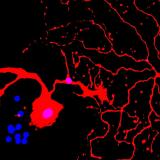The Australian Government is now in caretaker period. During this time, updates on this website will be published in accordance with the Guidance on Caretaker Conventions, until after the election.
Organ and tissue transplantation is an effective and well-established treatment, with the potential to drastically improve the health and life of recipients. However, despite increasing success rates and the broadening of recipient eligibility and organ suitability criteria, the demand for organs and tissues continues to exceed their availability.
The availability of donor organs and tissues for transplantation relies mainly on the generosity of individuals, and their families, to donate. For a system of altruistic donation to flourish, it is important that donation processes are underpinned by ethical principles and values that safeguard donors and their families from exploitation and harm, and engender community faith in the system. Similarly, for the ongoing success of the transplantation system, decisions about eligibility, suitability, and allocation must be ethically robust, transparent, and guided by ethical principles and values.
Through the work of the Australian Health Ethics Committee (AHEC), NHMRC has issued the following guidelines to provide an overarching framework to guide ethical practice and inform decision-making by everyone involved in organ and tissue donation and transplantation:
- Organ and tissue donation after death, for transplantation – Guidelines for ethical practice for health professionals, 2007 (Under review)
- Making a decision about organ and tissue donation after death, 2007 (Under review)
- Organ and tissue donation by living donors – Guidelines for ethical practice for health professionals, 2007 (Under review)
- Making a decision about living organ and tissue donation, 2007 (Under review)
- Ethical guidelines for organ transplantation from deceased donors, 2016.
In 2017, NHMRC commenced a review of the organ and tissue donation and transplantation guidelines for currency, relevance and consolidation.
Review of Guidelines The NHMRC CEO has established the Organ and Tissue Working Committee (OTWC) to advise AHEC on the review of the NHMRC ethical guidelines on organ and tissue donation and transplantation.


